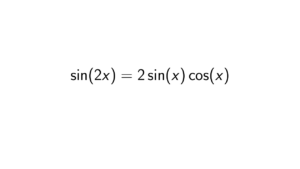Prove that (2,x) is not a principal ideal of \mathbb{Z}[x]
Proof. Assume by contradiction that (2,x) is a principal ideal. Then (2,x) = (f(x)), where f(x) \in \mathbb{Z}[x]. Say we have 2 \in (f(x)). Then by the definition of an ideal, we have that 2 = f(x)g(x) for some g(x) \in \mathbb{Z}[x]. By some basic calculus and that \mathbb{Z}[x] is an integral domain, we have that deg(f(x)g(x)) = deg(f(x)) + deg(g(x)). So we know 2 = f(x)g(x) possible if both f(x) and g(x) are constants. This implies that f(x),g(x) \in \{\pm 1, \pm 2\}. We see the two different situations:
- Assume that f(x) = \pm 1. Then this implies that (f(x)) = \mathbb{Z}[x], which is not a proper ideal.
- Assume that f(x) = \pm 2. Then we have that if x \in (f(x)), then x = 2\cdot g(x). This implies that g(x) = \frac{1}{2}x, which is impossible since g(x) \in \{\pm 1, \pm 2\} and secondly \frac{1}{2} \not \in \mathbb{Z}.
So (2,x) is not a principal ideal of \mathbb{Z}[x], which completes the proof.
Note that with the proof above, we also proved that \mathbb{Z}[x] is not a PID.
